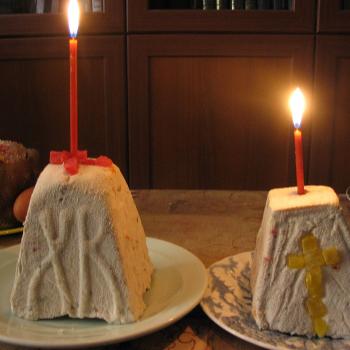Not for nothing did education activist and terror survivor Malala Yousafzai receive the Nobel Peace Prize in 2014. Her honor is fitting in a year that will be remembered as the year of martyred children. The terrorist group ISIS has been beheading Christian children in the streets of Iraq and Syria. Nigerian militia group Boko Haram has targeted “Western” schools, where they have slaughtered boys and sold girls into slavery. This month, in Peshawar, Pakistan, Taliban guerrillas chose a school as the scene of a massacre which makes 2012’s Sandy Hook shooting pale in comparison.
These murderous groups all call for the whole world to be enslaved to a capricious, unknowable demon-god, whose bloody demands are mediated through unaccountable leaders using their influence to spread oppression and terror. Children have become their prime symbolic targets.
Destroying the past, killing the future
Before the war in Afghanistan, the Taliban was best known for outlawing girls’ education and vandalizing sites of religious and historical significance. This trend continues with ISIS destroying many ancient churches, mosques, and cultural sites, while Boko Haram focuses its violence on educational institutions. In their view, the past has nothing to teach. Reverence for old things is idolatry.
To these cultists, the past does not matter, and the future does not exist. Their attacks on children are symbolic assaults on the future. Mass murder is praised as a righteous deed. To die in a suicide attack on innocent people is to win eternal glory. For them, people do not exist as human beings. Souls are mere symbols: either obedient slaves of the demon-god, or unbelievers who must be enslaved or destroyed. They see killing unbelievers as a religious duty. If they could destroy the whole world, it would be an acceptable act of worship to their demon-god.
Light shines in darkness
On December 28, just after the joy of welcoming Jesus into the world, Christians pause to remember the infants and toddlers who the tyrant Herod slaughtered in his own attempt to extinguish the light of history. This is the dark world in which we live, a world so dark that only the intervention of a true, personal, and just God can give us hope.
The god of ISIS, Boko Haram, and the Taliban, the god of everyone who slaughters innocent children, is the old serpent, who has hated mothers and children ever since God promised our mother Eve that her offspring would crush the serpent’s head. By living, suffering and dying with us and for us, Jesus gives us the hope of a God who grieves with us: a God we can trust to save us. “The light shines in the darkness, and the darkness has not overcome it.”
A hunger for justice
When we hear of murdered children across the world—or outrages closer to home—we feel righteous anger and a hunger for justice. Jesus teaches us that we must seek peace and forgive our enemies. What can we do with our fierce desire for retribution?
Certainly governments are responsible to preserve justice and punish evil. But their ability falls short of the task. Even enlightened, democratic governments can be full of corruption and injustice, as this year’s domestic headlines show all too well.
The ultimate answer is Jesus, who entered the world to experience its violence and pain with us. He has now become the King who will execute justice upon all evil. Only Christ’s final perfect judgment can fully answer the pain in all of our hearts.
The innocent victims of Bethlehem, and every child murdered by the demon-god’s followers since then, look to Jesus for their vindication. Jesus has overcome death and the prince of darkness; he has become Lord and judge of all. The mutilated serpent still thrashes in his death agony, but his time is short, and both he and his followers will be cast out.
 Peter Schellhase studied political philosophy at Patrick Henry College, and has worked in government and nonprofits. He lives with his wife in Leesburg, Va., and serves on the vestry of a local Episcopal Church.
Peter Schellhase studied political philosophy at Patrick Henry College, and has worked in government and nonprofits. He lives with his wife in Leesburg, Va., and serves on the vestry of a local Episcopal Church.













